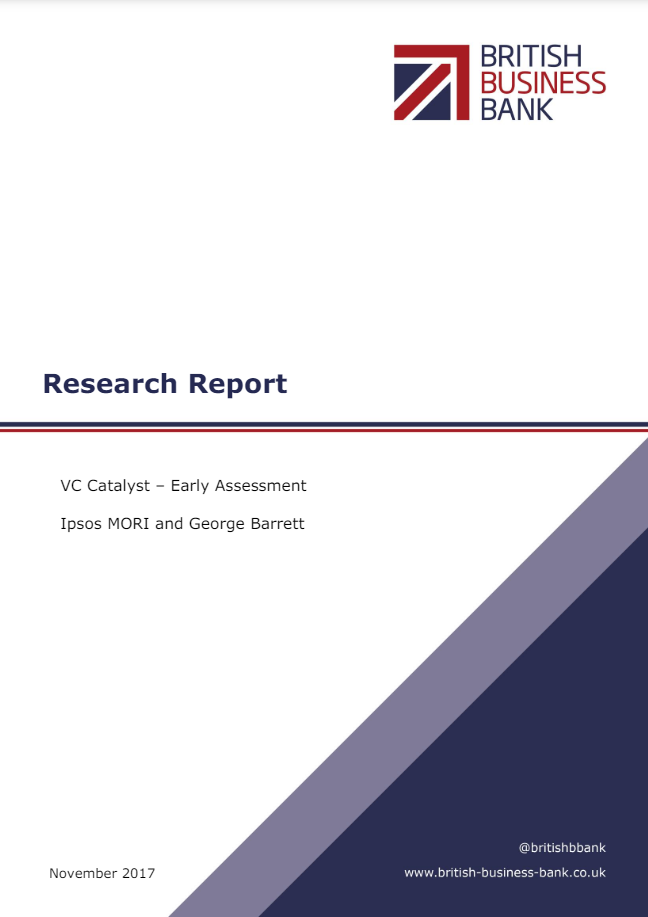Report and publications
VC Catalyst Early Assessment Results
The Early Assessment of the Venture Capital (VC) Catalyst programme undertaken by Ipsos MORI has generated the following key research findings:
- The original rationale for the VC Catalyst programme in helping funds to close was valid in 2013 and remains part of the rationale. However, the VC market has changed over time and the VC Catalyst has evolved with this to encompass a wider rationale.
- There is evidence of the programme enabling funds to close sooner and at a larger scale than they otherwise would have done, suggesting good partial finance additionality at the fund level.
- The VC funds supported by the VC Catalyst programme are largely investing in highly innovative and R&D intensive businesses that have the potential to scaleup rapidly.
Policy Context
The original rationale for the VC Catalyst programme in helping funds to close was valid in 2013 and remains part of the rationale. However, the VC market has changed over time and the VC Catalyst has evolved with this to encompass a wider rationale.
The assessment validates the rationale for the VC Catalyst’s introduction in 2013. The UK VC market exhibited limited investor liquidity and low historic returns, especially in the period following the financial crisis, making fund raising conditions difficult for fund managers. The supply of VC finance available to smaller businesses and average fund raising amounts have increased since 2015, although the number of European funds that have closed has decreased since 2013, suggesting larger fund sizes.
To some extent, this reduces the ongoing cyclical case for the VC Catalyst in helping funds to close. However, the evidence points to material challenges remaining in the market and the requirements shifting towards the need for greater patient and scaleup capital, an increased supply of high-skilled fund managers and more clarity around the role of the European Investment Fund (EIF) once the UK has left the European Union.
These market challenges align well with the overall aims and objectives of the revised VC Catalyst introduced in 2016 to target later stage VC, with the ability to provide larger funding amounts and to cornerstone funds.
